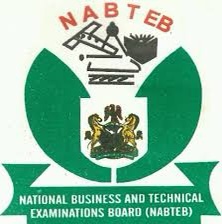
*COMPLETED 2022 NABTEB AGRICULTURAL SCIENCE ANSWERS*
(1a)
(i) Implements and Machinery.
(ii) Transport Network.
(iii) Animal and Plant Breeding.
(iv) Provision of Storage Facilities.
(v) Development of Fertilizers.
(vi) Development of Farm Management System.
(1b)
(i) Tax Advantages.
(ii) Cash Flow Opportunities.
(iii) Equity Appreciation.
(iv) Favorable Financing Rates.
(1c)
(i) Plough.
(ii) Harrows.
(iii) Ridgers.
(iv) Planters.
(v) Cultivators.
(iv) Aquaculture is the act of rearing selected species of fish, shrimps, crabs e.t.c under scientific-controlled conditions in closed bodies of water such as ponds, streams and rivers where they feed, grow, breed and are harvested for consumption or for sale.
========================
(3ai)
[UNDER SOIL REQUIREMENTS]
Maize requires a temperature of 26°C – 30°C, rainfall of between 75cm – 150cm per annum and a well drained sandy loamy soil of pH 6-7.
(3aii)
[UNDER METHOD OF PROPAGATION]
Maize is propagated by seeds. The maize seed can be planted manually by stuck or cutlass, or mechanically by planter.
(3aiii)
[UNDER PLANTING DATE]
Early maize is planted between March/April and Late maize is July/August. Maize (early or late) is also planted depending on location and rainfall.
(3aiv)
[UNDER SEEDRATE]
The Quantity of seeds required to plant one hectare of land is 25kg – 30kg/hectare; two to three seeds are also recommended per hole. Quantity of seeds used usually depends on spacing or plant population desired.
(3av)
[UNDER THREE METHOD OF HAVESTING]
(i) Hand Harvesting.
(ii) Harvesting with hand Tools such as sickle.
(iii) Harvesting with Machinery such as corn picker or harvester.
(3avi)
[UNDER STORAGE]
Dried Maize cobs can be stored either in cribs, rhumbus or in a fireplace, on a small scale or in a silos, on a large scale.
(3b)
(i) Cultural Control: This involves the use of Crop Rotation, resistant varieties, tillage practices, regular weeding, fallowing timeliness of planting e.t.c to control or prevent disease.
(ii) Biological Control: This involves the use of natural enemies of diseases to reduce or totally eliminate the diseases.
(iii) Chemical Control: This involves the use of chemicals such as fungicides, nematicides and incesticides to dust or spray plant materials in order to prevent or control plant diseases.
(iv) Plant Quarantine: This involves the legal restriction on the movement of agricultural commodities for the purpose of exclusion, prevention or delay in the establishment of plant diseases in areas where they are not known to occur.
(v) Physical Control: This Involves the physical removal of infected crop or plant.
============================
(4a)
(i) Progeny Selection: This are animals that are selected on the performance of their progeny or offspring. Mothers of the the best performing are retained while the mothers of offspring that do not perform well are discarded.
(ii) Pedigree Selection: Animals are selected or rejected on the basics of performance of their ancestors. This selection is based on the belief that ancestors have passed on their traits to the animals being considered and so the animal is likely to perform equally or even better than the ancestors.
(iii) Inbreeding: This involves the mating of more closely related animals than the average of the population from which they come, e.g. the mating of father to daughter, son to mother or brother to sister.
(iv) Outbreeding: This is the mating of unrelated individual animals within the same breed.
(4b)
(i) There is lack of land because it requires large area and therefore not good for commercial purposes.
(ii) When badly managed, it may result in the accumulation of germs and parasites.
(iii) It exposes the birds to extreme weather conditions.
(4c)
(i) Capon: A Capon is a castrated male fowl.
(ii) Broiler: A Broiler is a fowl reared for meat.
==========================
(5a) [CHECK THE DIAGRAM FOR THE CALCULATIONS]
(5b)
(i) Farm Diary: This is the record of daily activities on the farm. It is also a record of events about the farm. It servers as a good reference book to obtain information about the farm.
(ii) Annual Valuation: Farm Managers should keep statements of the value of stocks at the beginning and end of the year.
(iii) Yield or Production Record: This shows the yields of crops cultivated on the farm, it also shows the produce from livestock or poultry, it helps in variety selection.
(iv) Payroll Or Labour Record: It shows the amount (number) and types (specialization) of labour hired or employed to work on the farm. It also shows the rate and wages paid. It helps in profit and loss account.
(5c)
Selective Exploitation: Is the cutting of matured trees leaving the young ones to continue growing to avoid destructive effects of both wind and water erosion.
==========================
(6a) [CHOOSE ANY OF THE DEFINITION👇]
Apiculture is the maintenance of honeybee colonies, commonly in hives, by human for the purpose of producing honey and wax.
OR
Apiculture or Bee-keeping is the art and science of domesticated bees (insects) for the production of products such as honey and wax.
(6b)
(i) Location of apiaries far from human dwelling.
(ii) Putting warning symbols near apiaries.
(iii) Wearing of protective clothing.
(iv) Use of smokers: smoke calms bees, it initiate a feeding response in anticipation of possible hive abandoned due to fire.
(v) Keep Bee Colonies where abundant source of Water, Pollen and Nectar is available.
(vi) Regularly clean the bottom board of Bee box (Hive) and maintain colony hygiene.
(6c)
(i) Close Season: This regulation in which no fishing I permitted to take place for a given period of time
(ii) Population Control: This involves the use of other fish types clarias (catfish) to eat up tilapia or early harvesting to prevent over-population.
(iii) Landing Tax: Landing tax should be introduced such that total catch and sizes of fish should be taxed at the site of landing.
(iv) Restriction on breeding section: The breeding section of water should be identified so as to restricted fishing in that section.
(v) Prohibition of Dumping Toxic Materials: The dumbing of toxic materials or industrial wastes should be prohibited in fishing areas or water.
(vi) Catch Quota: This is a form of control in which a fisherman is allowed to catch a specific quantity of fish or regulating the number of fishermen by issuing them fishing permits or licenses at a specific amount.
(6d) [CHOOSE ANY BEST ONE YOU LIKE]
Crop improvement is defined as the science that deals with the development of new crop varieties with superior quality and quantity.
OR
Crop Improvement refers to the ways of developing and breeding of crop varieties which are better than the existing varieties in a number of characters.



Leave a Reply